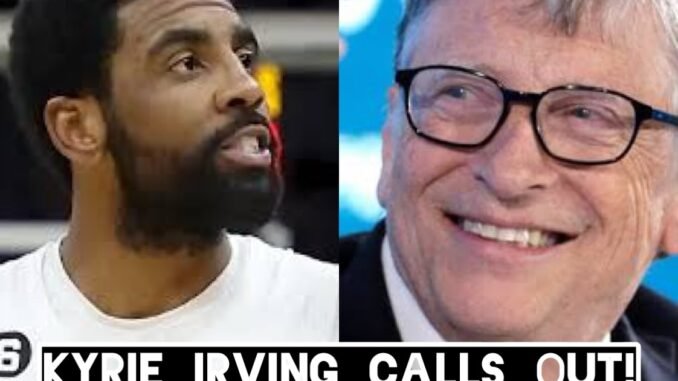
Kyrie Irving, a prominent player for the NBA, recently caused a stir on Twitch for an unorthodox claim—this time, that Bill Gates owns most of the land and water in the US—rather than for any particularly impressive dribble move.
“I still think it’s weird that, you know, the Gates family, or Bill Gates, owns a lot of the land in North Dakota. I think that’s weird. He owns a majority of the water in the United States. I think that’s weird.”
Kyrie’s comments sparked immediate reactions online. While he’s no stranger to alternative perspectives, having previously questioned the shape of the Earth, this statement taps into a mix of land ownership data, corporate farming concerns, and longstanding American anxieties about billionaire control over natural resources. But is there any truth to what he said?
Let’s break it down.
Bill Gates is indeed the largest private owner of farmland in the United States. According to The Land Report, as of 2021, Gates owned roughly 270,000 acres of farmland spread across more than a dozen states, including large parcels in Louisiana, Arkansas, Nebraska, and Washington. This land is primarily used for agricultural purposes such as growing potatoes, carrots, soybeans, and corn.
However, this number represents just 0.03% of the 895 million acres of total American farmland, per the USDA. And that’s just farmland, not total land area, which is around 2.3 billion acres in the U.S. Gates’ holdings make him a notable figure, but the idea that he owns a “majority” of U.S. land is objectively false.
This part of Kyrie’s statement has even less merit. Gates does not “own” the majority of the water in the United States. In fact, no one does.
Water rights in the U.S. are regulated by a patchwork of state and federal laws that depend heavily on geography.
For instance, riparian rights apply in the eastern U.S., granting landowners the right to reasonable use of water from adjacent sources.
In the arid western U.S., prior appropriation dominates: the first person to use water for a beneficial purpose gets the legal right to continue using it, regardless of land ownership.
Water is also governed by public trust doctrines in many states, meaning the government holds it in trust for the people.
Municipal utilities, irrigation districts, and federal agencies like the Bureau of Reclamation manage large reservoirs and delivery systems, not private billionaires.
Gates has made philanthropic investments in water sanitation, particularly in developing nations, but these are far removed from owning U.S. water rights.
Kyrie’s framing taps into growing public distrust of billionaires buying up large swaths of land, especially as food security and climate change become pressing concerns.
Gates’ massive wealth, estimated at $128 billion as of 2025, according to Forbes, makes him a natural lightning rod for these fears.
But equating that wealth with ownership of a country’s natural resources is a leap too far.
Water is also governed by public trust doctrines in many states, meaning the government holds it in trust for the people. Municipal utilities, irrigation districts, and federal agencies like the Bureau of Reclamation manage large reservoirs and delivery systems, not private billionaires.
Gates has made philanthropic investments in water sanitation, particularly in developing nations, but these are far removed from owning U.S. water rights.
Kyrie’s framing taps into growing public distrust of billionaires buying up large swaths of land, especially as food security and climate change become pressing concerns. Gates’ massive wealth, estimated at $128 billion as of 2025, according to Forbes, makes him a natural lightning rod for these fears. But equating that wealth with ownership of a country’s natural resources is a leap too far.
While there’s nothing wrong with questioning power, the facts simply don’t back up Kyrie’s claim. Bill Gates doesn’t own the majority of U.S. land or water, just a small but notable slice of farmland.
The water system in the U.S. is a decentralized, highly regulated domain that no single person or entity can “own” in any meaningful way.
In this case, Kyrie may have dribbled a little too far from the truth
Leave a Reply